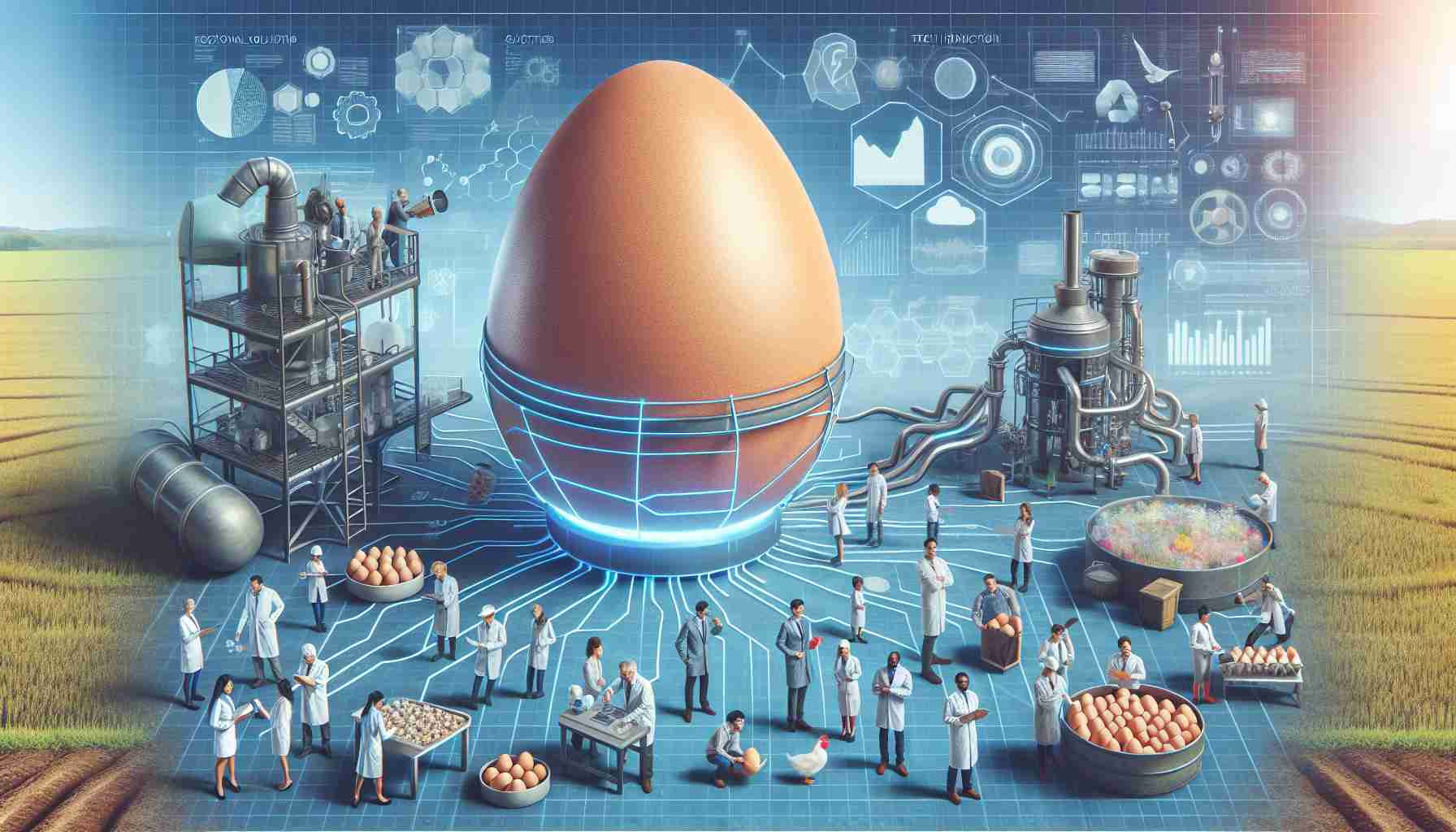The Egg Crisis: Tech Solutions You Didn’t See Coming
- The “egg crisis” highlights challenges in sustainability and animal welfare due to rising egg demand.
- Automation and robotics improve poultry farming efficiency and reduce waste.
- Biotechnology is paving the way for lab-grown eggs with a minimal carbon footprint and ethical advantages.
- Blockchain enhances traceability and transparency in the egg supply chain for informed consumer choices.
- Technological advancements offer sustainable solutions and a new direction for future food production.
The world is facing an unexpected challenge—the emerging “egg crisis.” As demand for eggs continues to rise, concerns about sustainability and animal welfare have come into sharp focus. Enter cutting-edge technology poised to revolutionize the egg industry and address these pressing issues.
Automation and robotics are making significant strides in poultry farming. Robot-assisted egg collection and advanced sorting technologies are enabling producers to increase efficiency and reduce waste. By automating the process, farms can manage larger operations with fewer resources, thereby minimizing their environmental impact.
Meanwhile, biotechnology companies are exploring alternative egg production methods. Lab-grown eggs, synthesized without the need for chickens, are on the brink of entering the market. These eggs promise to be indistinguishable from the real thing, yet boast a much smaller carbon footprint and eliminate animal welfare concerns.
In addition, blockchain technology is being utilized to enhance traceability and transparency in the egg supply chain. Consumers can now verify the origin and welfare standards of the eggs they purchase, ensuring ethical consumption.
These innovations not only offer solutions to the current crisis but also provide a glimpse into the future of food production. As society strives for more sustainable practices, technology holds the key to ensuring our omelets remain a breakfast staple without compromising our planet or principles. The “egg crisis” might just be the catalyst for transforming how we produce and consume one of the world’s most ubiquitous food items.
How Cutting-Edge Innovations Are Scrambling the Egg Industry
The emergence of an “egg crisis” has prompted a re-evaluation of sustainability and animal welfare within the egg industry. As demand soars, innovative solutions ranging from automation to blockchain technology are reshaping how eggs are produced and consumed. Here, we explore the latest trends, breakthroughs, and future predictions for this essential market.
1. How are robotics and automation transforming poultry farming?
Robotics and Automation Enhancements:
Automation and robotics are revolutionizing poultry farms by introducing robotic egg collection and advanced sorting technologies. These innovations increase operational efficiency and cut down on waste, allowing farms to operate on a larger scale while reducing their environmental footprint. By moving towards automated processes, the industry is set to achieve higher sustainability standards.
Relevant Link:
Automation And Robotics In Farming
2. What is the future of lab-grown eggs, and how might they impact the market?
Biotechnology and Lab-Grown Eggs:
Biotechnology companies are exploring the potential of lab-grown eggs, poised to enter the market soon. These lab-grown alternatives promise to replicate the taste and texture of traditional eggs, significantly minimizing carbon emissions and addressing animal welfare concerns. Their introduction could fundamentally shift consumer preferences and foster more ethical consumption practices.
Future Impact:
Lab-grown eggs may dominate niche markets initially, but with growing acceptance, they could account for a significant portion of egg consumption globally, driving down prices and encouraging widespread adoption.
Relevant Link:
Biotechnology In Food Production
3. How is blockchain technology improving transparency in the egg supply chain?
Blockchain Advancements:
Blockchain technology is being deployed to enhance transparency and traceability in the egg supply chain. This allows consumers to verify the origin of their eggs, understanding welfare standards and authenticity with ease. This technological application promotes ethical consumption and builds consumer trust.
Security and Trust:
The use of blockchain technology ensures protection against fraud and ensures the integrity of the supply chain, offering peace of mind to consumers and producers alike.
Relevant Link:
Blockchain Technology Explained
Market Predictions and Sustainability Insights
– Market Forecasts: As sustainability becomes imperative, the egg industry’s shift toward innovative technologies is predicted to deliver significant market growth over the next decade, with lab-grown and ethically sourced eggs leading this charge.
– Sustainability and Trends: There is a rising trend towards ‘green’ farming practices with automation and biotechnology at its core. Blockchain technology ensures consumer-facing transparency, further pushing the industry towards sustainability goals.
– Ethical Consumerism: With these technological advancements, more consumers are likely to choose products that align with their values, ultimately driving industry-wide shifts towards ethical and sustainable practices.
In conclusion, the “egg crisis” heralds a new dawn for the industry, as cutting-edge technologies support both sustainability and ethical practices, ensuring the future of this fundamental food source.









